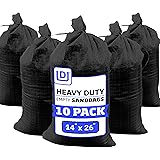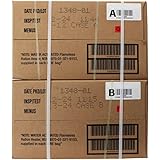1. Homesteading Experts
Understanding the Homesteading Lifestyle
When I first dipped my toes into self-reliant living, I came across a ton of resources from homesteading experts. These folks know their stuff when it comes to being self-sufficient. They often teach principles of gardening, animal husbandry, and sustainable practices that are vital for anyone looking to embrace this lifestyle.
Homesteaders share their journeys, often filled with practical advice, tips and even failures. When you understand their struggles, it becomes a lot easier to learn from them without making the same mistakes. It’s all about community and sharing that hard-earned knowledge.
Many Homesteaders have blogs, YouTube channels, or social media accounts where they share real-time updates from their projects. Following them allows a peek into their everyday life and offers motivation when you’re working on your own homesteading goals.
Recommended Homesteading Influencers
One of my go-to influencers is Jill Winger of “The Prairie Homestead”. She’s super relatable and shares valuable information ranging from canning to raising chickens. Her website is a treasure trove for anyone looking to get started.
Another favorite is Justin Rhodes, who not only talks about the nitty-gritty of homesteading but also highlights the joys of it through family-oriented experiences. His YouTube channel is full of fun adventures that make learning about homesteading enjoyable.
Don’t forget about the Southern Exposure Seed Exchange as a fantastic resource. They offer various heirloom seeds and host workshops that can enrich your gardening knowledge. It’s community-driven and super helpful for any level of expertise.
Engaging with the Homesteading Community
Engagement is key! Most homesteading experts thrive in community settings and forums. Website forums, Facebook groups, and local meetups are great ways to connect. It feels good to share tips and stories, and you’d be surprised what you can learn from fellow enthusiasts.
Participating in online discussions can also lead to discovering new resources, books, and even workshops that might be happening near you. I’ve met some amazing people just by joining these communities, and many have become friends over time.
== > What if ... Get a FREE Subscription to PREPARE
Don’t be shy to ask questions or share your progress! The self-reliant living community is usually very supportive so you’ll find a bunch of folks ready to help or cheer you on. It’s uplifting and makes the journey so much richer.
2. Sustainable Living Advocates
Why Sustainability Matters
In my journey toward self-reliant living, learning about sustainability has been a game-changer. Not only does it resonate with self-sufficiency, but it also means living in a way that’s more kind to the earth. I’ve learned to appreciate every resource and how to use them wisely and efficiently.
Some sustainable living advocates focus on reducing waste, while others may delve into renewable energy sources or eco-friendly practices. Their insights can broaden your understanding of how your lifestyle choices impact the planet.
The beauty of this facet of self-reliance is that it encourages creativity in problem-solving. For instance, re-framing how you think about waste can inspire projects involving composting or upcycling.
Influencers Promoting Sustainability
One of my favorite go-to resources has been Bea Johnson, author of “Zero Waste Home”. Her approach has helped me rethink my consumption habits and prioritize what I truly need versus what just adds clutter.
Similarly, I absolutely love following Lauren Singer of “Trash is for Tossers.” She has a knack for making sustainable living not only achievable but also fun and stylish! Her DIY tips are approachable for anyone looking to reduce their footprint.
There are podcasts as well, like “The Minimalists Podcast”, that dig deeper into living intentionally and sustainably. They unpack interesting ideas that can motivate you to make small but impactful changes.
Connecting with Sustainability Movements
To truly absorb sustainable practices, engaging with local environmental groups or attending workshops can be beneficial. These activities allow you to learn hands-on, which has been invaluable for me.
Many communities have local initiatives that focus on permaculture principles or community gardens. Volunteering for these projects enhances understanding through practice and you’ll often find like-minded individuals eager to share their experiences.
Social media also hosts a range of organizations advocating for sustainability where you can gain insights and become inspired. I recommend following hashtags related to sustainable living to stay updated or find new ideas in your feed.
3. Food Preservation Gurus
Importance of Food Preservation
Food preservation might sound ‘grandma-ish’, but trust me, it’s one of the coolest skills you can pick up as part of self-reliance. It’s not just about saving money; it’s about creating a stockpile of healthy food that you know where it comes from. Plus, it gives you a sense of accomplishment.
There are various methods like canning, dehydrating, or fermenting. Each technique offers its own benefits and can be tailored to your specific preferences. For someone who loves cooking, getting into preservation is like leveling up your kitchen game!
Learning food preservation also aligns perfectly with the bounty of growing your own crops. It feels amazing to know that the fruits of your labor won’t go to waste.
Influencers in Food Preservation
One of the leading voices in food preservation is Marissa McClellan, known for her book “Food in Jars”. Her approach is practical and filled with tons of recipes that don’t make it feel overwhelming. Plus, her community is very supportive!
Another great resource is YouTube where creators like “The Canning Nana” showcase various preservation methods that are easy to follow. She breaks down the processes so well; you feel like you can just jump right in!
Don’t forget to explore local classes or workshops focused on canning or food preservation techniques. I attended a class a while back, and the skills I learned there have transformed how I view food storage.
Getting Started with Food Preservation
Beginning with food preservation might seem daunting, but it’s simply about taking it one step at a time. Start with small batch canning or try dehydrating some fruits. Once you get the hang of it, you’ll want to dive deeper!
Investing in good equipment is also key. A basic canning kit, jars, or a dehydrator can go a long way and will last you for years to come. Plus, having the right tools makes the experience more enjoyable.
Don’t hesitate to experiment and find what works best for you. There’s no singular right way, so have fun trying out different recipes and techniques that align with your taste and lifestyle!
4. DIY Survivalists
Skills Every Self-Reliant Person Should Have
Survival skills are super important for anyone stepping into self-reliance. Whether it’s creating a makeshift shelter, identifying edible plants, or even starting a fire without matches, these skills can boost your confidence immensely.
Even if you’re not keen on going off the grid, knowing basic survival skills leads to greater peace of mind. Who knows when you might need to improvise during a camping trip or even in your own backyard?
Start by understanding your environment. Local survivalists often focus on specific techniques relevant to their area, which is extremely helpful for practical applications in everyday life.
Following Survivalist Experts
Among the experts in this sphere, Bear Grylls really stands out. While he has taken survival to an extreme level for entertainment, it’s informational. His style emphasizes resourcefulness and creativity, which are essential in real survival situations.
Les Stroud, from “Survivorman,” also presents a great balance between entertainment and education. He emphasizes raw skills and leaves you better prepared for any unexpected wilderness situation.
Additionally, there are many online platforms and courses focused on survival skills. Joining forums where enthusiasts share their experiences can also provide invaluable insight and practical ideas.
Practicing DIY Survival Skills
Practicing these survival skills can be fun too! Why not plan a weekend camping trip where you practice building a shelter or cooking with limited supplies? Hands-on experience is truly the best teacher.
I also recommend taking some basic first aid courses. Knowing what to do in emergencies is crucial for self-reliance, and it builds your confidence as well.
Lastly, don’t limit your experiments to traditional skills. Many contemporary survivalists are now incorporating modern technology and techniques, which can open up even more resources and tools, making survival smoother and safer.
5. Off-Grid Living Enthusiasts
Understanding Off-Grid Living
Off-grid living isn’t for everyone, but even if you’re not planning to completely disconnect, learning about it can enhance your self-reliance journey. Many folks who go off-grid focus on generating their own power, collecting rainwater, or finding efficient waste management solutions.
What I love about off-grid living is the immense sense of freedom it can provide. Living with less reliance on modern conveniences allows individuals to reconnect with nature and their resources.
Even just implementing a few off-grid practices in your life can be rewarding. It encourages a mindfulness that translates well into all aspects of self-reliance.
Connecting with Off-Grid Experts
A person to follow in this realm is Ben Falk of “The Resilient Farm and Homestead.” He emphasizes practical ways to build resilience and achieve sustainability, even within less-than-ideal conditions. His experiences can inspire you to think creatively about your own living situation.
Another awesome resource is Caitlyn from “The Farmstead Life,” who focuses on topics like solar power, water collection, and composting toilets. Her hands-on approach makes off-grid practices feel much more attainable.
Books about off-grid living are also a treasure trove. “The Complete Off-Grid Living Manual” is one I always recommend; it’s got practical tips that anyone can utilize regardless of your current living conditions.
Implementing Off-Grid Ideas at Home
You don’t have to head to the mountains to start living more off-grid. Small changes like starting a rainwater collection system or installing solar-powered lights in your garden can create off-grid vibes right at home.
Another fun way to dip your toes in is through gardening. Focusing on growing food sustainably brings a bit of that off-grid spirit into your everyday life. It’s satisfying to harvest and utilize your own crops!
Lastly, while fully going off-grid is a monumental commitment, even adopting a few off-grid practices can lead to a more intentional lifestyle. It’s about making choices that align with your values and that’s truly empowering.
Frequently Asked Questions
1. How can I start my journey toward self-reliant living?
Start small! Begin by researching various self-reliance skills, like gardening or food preservation. Then, pick a few areas you’re interested in and dive in. Joining forums or communities can also provide motivation and support.
2. Are there any specific books or resources you recommend?
Definitely! Some of my favorites include “The Backyard Homestead” for gardening, “Food in Jars” for preservation advice, and “The Complete Off-Grid Living Manual” for a broad view of self-reliant practices.
3. Is self-reliant living expensive?
It can vary. While some initial investments are necessary, many self-reliant practices help save money in the long run, such as growing your own food or learning skills that reduce reliance on bought products.
4. How do I connect with others interested in self-reliant living?
Try local classes, workshops, or online forums on social media platforms. Engaging with communities like Facebook groups focused on homesteading or sustainable living can lead to valuable connections.
5. Can I incorporate self-reliant living into a busy lifestyle?
Absolutely! You can start with small changes and gradually build habits that fit into your schedule. Even tiny steps, like growing herbs on a windowsill or learning basic preservation techniques, can make a difference.






